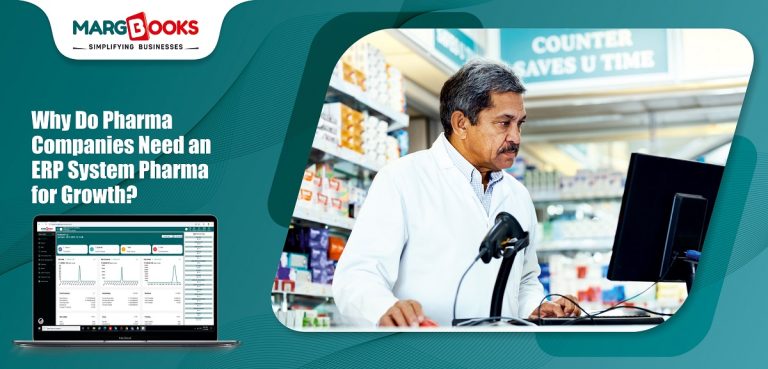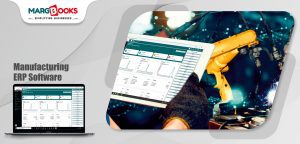The pharmaceutical industry is one of the most dynamic and complex sectors globally. With rapid advancements in healthcare, increasing competition, and evolving regulatory landscapes, pharma companies face an ever-growing set of challenges. To stay competitive and achieve sustainable growth, pharmaceutical companies need robust systems to manage operations efficiently. One such system is an ERP system pharma. In this blog post, we’ll explore why an ERP system is essential for pharmaceutical companies and how it can help fuel their growth.
What is an ERP System for Pharma?
An ERP system pharma (Enterprise Resource Planning) is a centralized software system designed to streamline and automate various processes within a pharmaceutical company. It integrates different functions such as production, inventory management, supply chain, quality control, finance, and more into a single platform. This ensures smoother operations, reduces manual work, and provides real-time insights into business performance.
The Need for an ERP System Pharma in the Growing Industry
The pharmaceutical industry in India is rapidly growing, and with it, the need for efficient operations and compliance. Here are a few reasons why pharma companies should adopt an ERP system for growth:
1. Streamlined Operations Across Departments
Pharma companies often have multiple departments handling everything from manufacturing to sales and distribution. Without a proper system in place, coordination among departments can become chaotic, leading to inefficiencies and delays.
An ERP system pharma can unify all these processes into a single platform, ensuring that all departments work in sync. For example, if a manufacturing department produces a batch of drugs, the inventory and sales departments are immediately updated, reducing the chances of stock-outs or excess inventory.
2. Advance Inventory Management
Pharma companies deal with vast inventories of raw materials, drugs, and finished products. Managing this inventory manually or using basic systems can result in stock discrepancies, leading to issues like overstocking or understocking.
An ERP system provides real-time tracking of inventory levels, which ensures accurate stock levels are maintained. This is crucial in the pharmaceutical sector, where inventory management directly impacts sales, profitability, and patient safety. Moreover, it integrates with tools like pharmacy billing software for seamless billing and invoicing processes.
3. Compliance and Regulatory Adherence
The pharmaceutical industry is highly regulated. Compliance with local and international regulations, such as Good Manufacturing Practices (GMP), Good Distribution Practices (GDP), and others, is mandatory. Pharma companies must keep detailed records of all operations to meet regulatory requirements.
An ERP system pharma simplifies the process of maintaining compliance by automating reporting and record-keeping. It helps ensure that every step of the manufacturing and distribution process is documented, making audits smoother and more transparent.
4. Improved Data Accuracy and Decision-Making
The pharmaceutical industry deals with large volumes of data, from patient prescriptions to raw material tracking and sales. Managing this data manually or using disjointed software can lead to errors and delays, which can be costly.
An ERP system centralizes data, ensuring that all information is accurate, up-to-date, and easily accessible. This allows pharma companies to make informed decisions based on real-time data. For instance, an online pharma Software can leverage ERP data to predict demand trends, optimize stock levels, and enhance customer service.
5. Optimized Supply Chain Management
In the pharma industry, an efficient supply chain is crucial for maintaining the flow of products and ensuring that drugs are delivered on time. Supply chain disruptions, delays in shipping, and quality issues can have severe consequences.
An ERP system pharma helps streamline the entire supply chain, from sourcing raw materials to delivering finished products to the market. By providing visibility into each stage of the supply chain, ERP allows companies to track shipments, monitor supplier performance, and manage delivery schedules more effectively.
6. Better Financial Management
Pharma companies often deal with complex financial transactions, including payments to suppliers, invoicing, insurance claims, and more. Managing these financial processes manually can result in errors, inefficiencies, and a lack of transparency.
An ERP system can automate financial processes such as invoicing, accounts payable/receivable, and payroll. It integrates with pharmacy billing software, making billing more accurate and less time-consuming. Additionally, it provides valuable insights into cash flow, helping managers make smarter financial decisions.
7. Scalability for Future Growth
As the pharmaceutical industry continues to evolve, companies need systems that can scale with their growth. A small or medium-sized pharma company may have limited resources, but as it expands, its needs grow in complexity.
An ERP system pharma is highly scalable, allowing companies to add new functionalities as they grow. Whether it’s expanding into new regions, adding new products to the portfolio, or increasing production capacity, an ERP system adapts to these changes seamlessly.
Benefits of ERP System Pharma
To summarize, the adoption of an ERP system pharma brings the following benefits:
- Increased Efficiency: Streamlines processes, reduces manual work, and speeds up operations.
- Accurate Data: Provides real-time data for informed decision-making.
- Cost Savings: Reduces errors, minimizes waste, and optimizes resource use.
- Compliance Assurance: Ensures adherence to industry regulations and standards.
- Scalability: Supports future growth and expansion of business operations.
How ERP Integrates with an Online Pharma Software
With the rise of e-commerce, many pharma companies are also operating online pharma Software to sell their products directly to consumers. An ERP system pharma can seamlessly integrate with an online store, enabling a smooth flow of data across platforms. For instance, inventory updates made in the ERP system are automatically reflected on the online store, ensuring that customers are only shown available products.
Moreover, ERP integration with online pharma Software helps with real-time tracking of orders, customer management, and sales analytics. This enhances the overall customer experience and allows businesses to offer more personalized services, such as tailored promotions or discounts based on purchase history.
Conclusion
The pharmaceutical industry is one of the most important sectors, and its role in improving global health cannot be overstated. To stay competitive and grow sustainably, pharma companies must embrace modern technologies. Our MargBooks software is one such technology that helps streamline operations, reduce inefficiencies, and ensure regulatory compliance.
By implementing an ERP system, pharma companies can scale their operations, optimize their supply chain, and ensure that every department is aligned with business goals. Whether it’s integrating with pharmacy billing software or managing an online pharma Software, ERP systems offer the flexibility and tools necessary to grow in today’s fast-paced, competitive market.
For pharma companies looking to stay ahead in the industry, investing in an ERP system pharma is no longer a choice – it’s a necessity.




